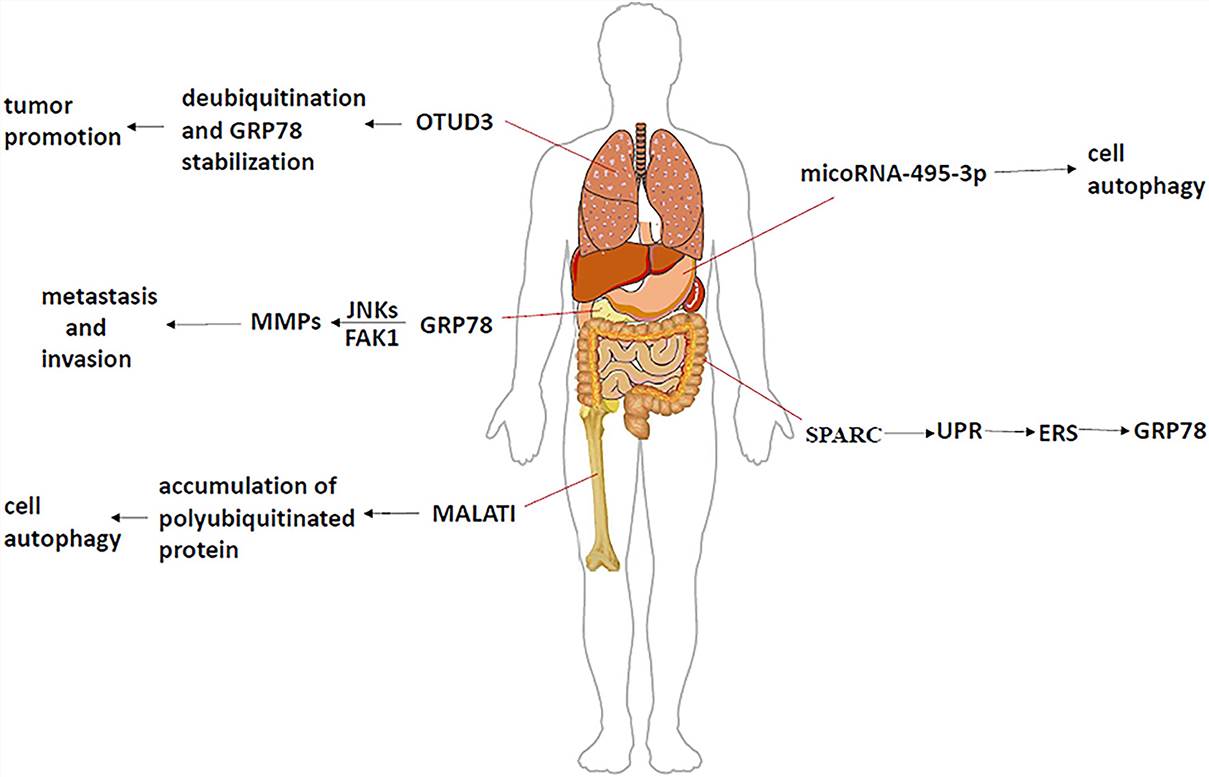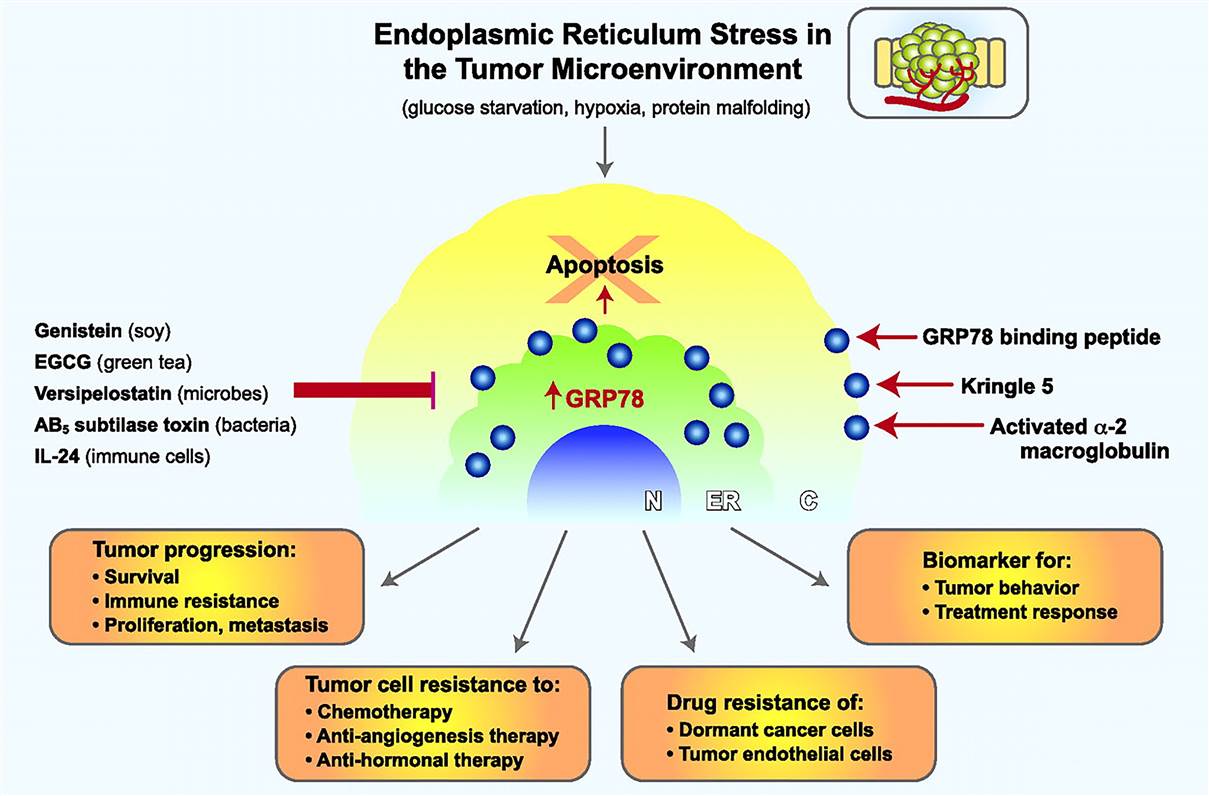GRP78 Assay Portfolio Service
Elimination of residual tumors remains a major challenge for cancer therapy. Recent researches reveal that Glucose-Regulated Protein 78 (GRP78) may represent a potential mechanism for tumor resistance and a new predictive biomarker to anti-cancer. With advanced and high-end technologies, rich experienced scientists, Creative Biolabs is an excellent service provider in the field of tumor marker assay. After long years ahead to fully comprehend tumor markers, we launch our GRP78 assay portfolio service which can be useful for targeted cancer therapy and diagnosis.
The Introduction of GRP78
GRP78, also known as BiP or HSPA5, is a mature endoplasmic reticulum (ER) chaperone that belongs to the heat shock protein 70 (HSP70) super-family. GRP78 is primarily localized in the endoplasmic reticulum (ER) lumen. GRP78, like many other glycoproteins, is highly expressed on the surface of cancer cells due to their inherently elevated ER stress levels. It has been demonstrated that global profiling of cell surface GRP78 (csGRP78) is highly related to pathological states making it a target for cancer therapy. The highly malignant and invasive glioblastoma has the highest overexpression of GPRP78 gene. Moreover, breast, lung, colon, prostate and liver cancers, as well as angiogenic endothelial cells also show a high expression.
 Fig.1 The mechanism of GRP78 in different tumors. (Lu, 2020)
Fig.1 The mechanism of GRP78 in different tumors. (Lu, 2020)
The Function of GRP78
Physiologically, GRP78 is one of the most important ER chaperones functioning as an essential component in many cellular processes. It binds to the polypeptide chain in a non-covalent bond on the ER and next disassociates, promoting proper protein assembly and folding and helping protein translocate across the ER membrane. In ER, GRP78 assists the ER protein to stabilize and induces protein folding reaction (unfolded protein response, UPR). The surface-related GRP78 plays a role in cell protection and mediated cytoskeletal remodeling, while the secreted GRP78 plays an immunomodulatory role. All members of the HSP70 family have the ability to bind to tumor-specific antigens and mediate immune responses. As a member with a certain correlation with antigen epitopes, GRP78 mainly stimulates anti-tumor immune responses through the cross-expression of histocompatibility complex molecules and initiates CD8+ cytotoxic T cell responses.
 Fig.2 ER stress induction of GRP78 in the tumor microenvironment. (Lee, 2007)
Fig.2 ER stress induction of GRP78 in the tumor microenvironment. (Lee, 2007)
GRP78 Blockade Assays at Creative Biolabs including but Not Limited to:
-
Cell activity assay
-
Cell cytotoxicity assay
-
Cell apoptosis assay
-
Cell proliferation assay
-
Cell migration assay
-
Cell invasion assay
-
Cell metastasis assay
-
Cytokine analysis
If you are interested in our service, please contact us or directly send us.
References
-
Lu, G.; et al. Targeting the GRP78 pathway for cancer therapy. Front Med. 2020, 7: 351.
-
Lee, A.S. GRP78 induction in cancer: therapeutic and prognostic implications. Cancer Res. 2007, 67(8): 3496-9.
For Research Use Only | Not For Clinical Use


 Fig.1 The mechanism of GRP78 in different tumors. (Lu, 2020)
Fig.1 The mechanism of GRP78 in different tumors. (Lu, 2020)
 Fig.2 ER stress induction of GRP78 in the tumor microenvironment. (Lee, 2007)
Fig.2 ER stress induction of GRP78 in the tumor microenvironment. (Lee, 2007)
 Download our brochure
Download our brochure